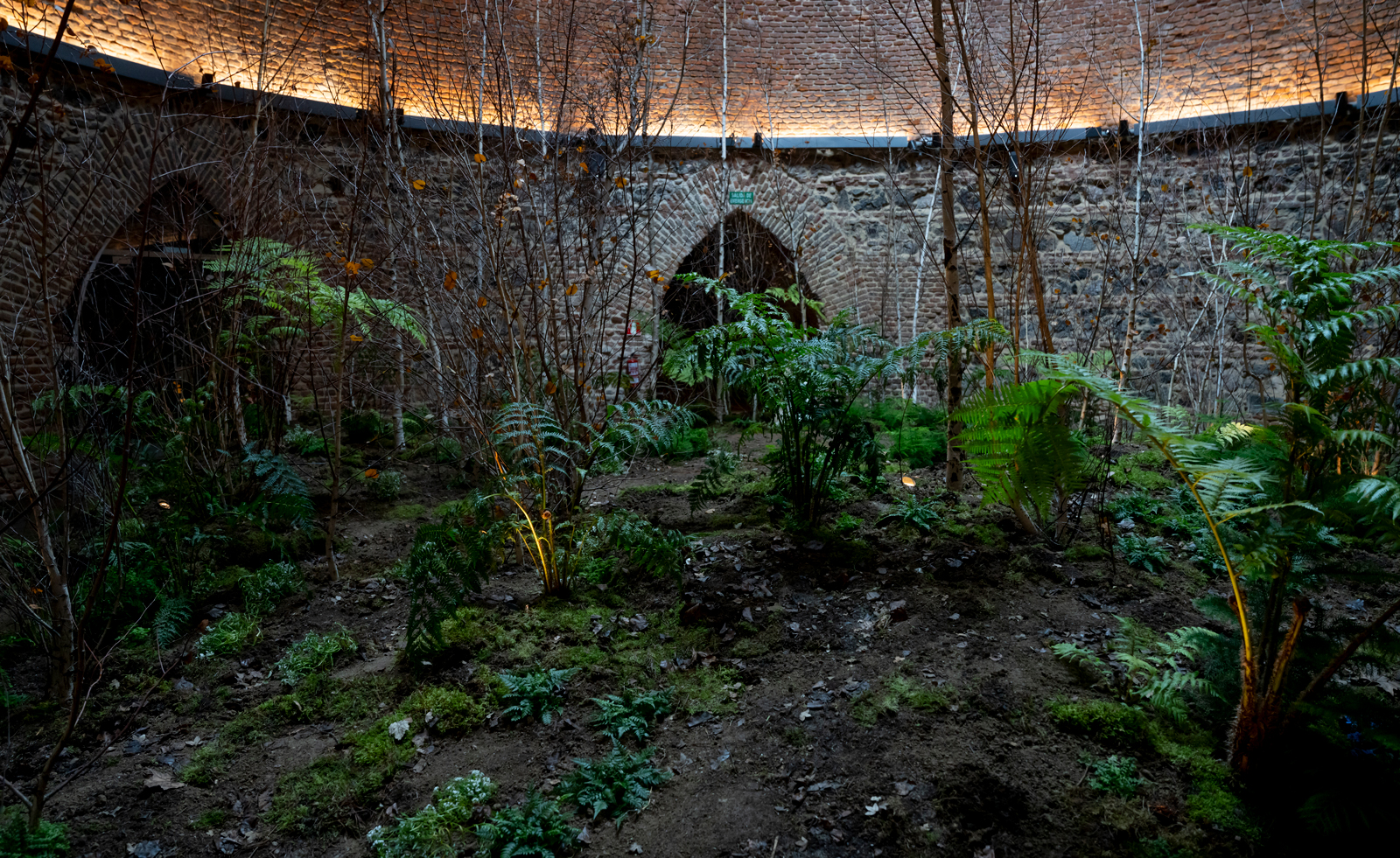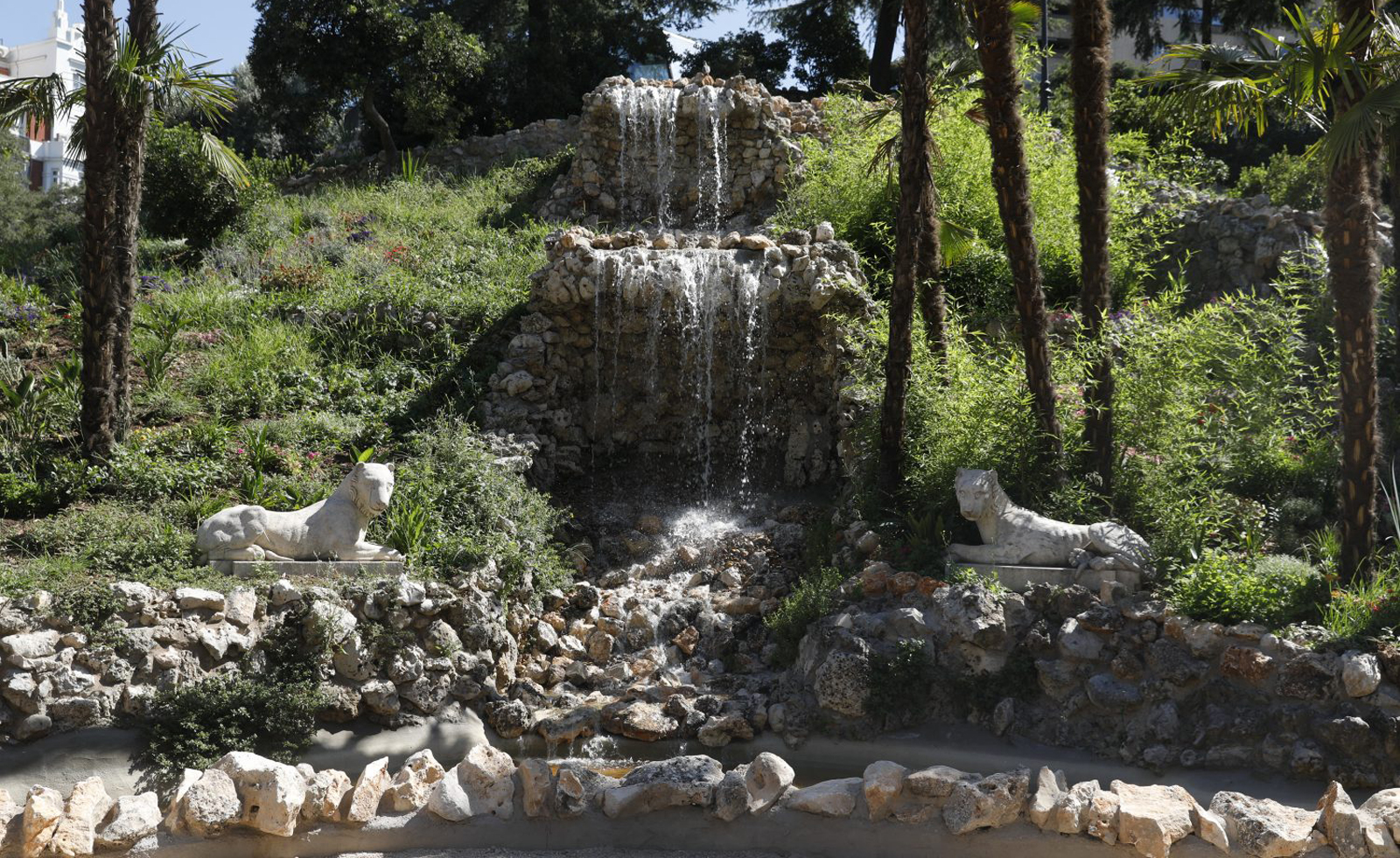Step inside Precious Okoyomon’s post-apocalyptic forest in Madrid
In Madrid, Precious Okoyomon and Hans Ulrich Obrist reconvene for Obrist’s annual site-specific curation for Fundación Sandretto Re Rebaudengo

Receive our daily digest of inspiration, escapism and design stories from around the world direct to your inbox.
You are now subscribed
Your newsletter sign-up was successful
Want to add more newsletters?

Daily (Mon-Sun)
Daily Digest
Sign up for global news and reviews, a Wallpaper* take on architecture, design, art & culture, fashion & beauty, travel, tech, watches & jewellery and more.

Monthly, coming soon
The Rundown
A design-minded take on the world of style from Wallpaper* fashion features editor Jack Moss, from global runway shows to insider news and emerging trends.

Monthly, coming soon
The Design File
A closer look at the people and places shaping design, from inspiring interiors to exceptional products, in an expert edit by Wallpaper* global design director Hugo Macdonald.
Some artists relish the pristine white walls of a gallery, able to surround their immaculate creation with clinical absence. Nigerian-American Precious Okoyomon is not one of these artists, as anybody who navigated their mulchy, decaying, and regrowing landscape within the Arsenale sheds of the Venice Art Biennale 2022 will recall. There, a meandering path through topology, bushes, and mud sculptures, within a space shared with snails and butterflies, was not only explored with the eyes, but also the nose as a nature-led act of resistance against racism.
Butterflies made a return alongside an animatronic bear in Okoyomon’s recent project at Sant’Andrea de Scaphis in Rome – the artist transforming the deconsecrated church into a humid and sweaty tropical forest where butterflies lived their best – if short – lives in a purpose-designed habitat. Fragrant honeysuckle and roses grew alongside plants poisonous to us humans, but from which the butterflies took nourishment. Okoyomon’s work flourishes in non-gallery spaces that offer a pre-existing sense of place, within which they expand the otherness and create a new world of unexpected, immersive, and complex interior landscapes.
Okoyomon came to the world of art through poetry, reading from their first published volume at the Serpentine Galleries in 2018, at the invitation of curator Hans Ulrich Obrist. In Madrid, the two have reconvened for Obrist’s annual site-specific curation for Fundación Sandretto Re Rebaudengo, working within possibly the most Okoyomon-perfect space imaginable.
Precious Okoyomon’s When the Lambs Rise Up Against the Bird of Prey, in Madrid

'I asked if there was a cathedral inside a mountain in the centre of Madrid,' Obrist said. He and Okoyomon had been discussing a visual response to composer Alexander Scriabin’s early-20th-century, never-completed Mysterium, which would have comprised not only music but also smell and touch. Scriabin composed his work to be performed over a week within a Himalayan-foothills cathedral, hoping it would culminate in the end of the world and the replacement of humanity with a nobler being.
'And there was!' Obrist exclaimed. To his welcome surprise, there was such a space in Madrid. Secreted inside Montaña de los Gatos, an 18th-century artificial mountain in the corner of the city’s Parque de El Retiro, was a resonant brick void as if readymade for this moment. Inside, Okoyomon has created a copse of spindly trees, each reaching towards the glass rooflight at the summit of the dreamlike space. On a mound of earth supporting aromatic and lush vegetation, sits a nodding and swaying animatronic of a humanoid-lamb. The creature invokes poet and essayist Anne Boyer’s 2014 text When the Lambs Rise Up Against the Bird of Prey, Okoyomon here reimagining Boyer’s vulnerable creature as an all-seeing, all-knowing survivor. In a romantic, post-human world, this might be Scriabin’s nobler being.
A picturesque path wraps the outside of Montaña de los Gatos. At the summit, it is possible to peak through the glass roof, from a real world in the throes of a climate crisis, into Okoyomon’s fantastical, post-apocalyptic forest. Only glimpses of the trees can be seen, and the lamb is not visible past the glass, which in bright Spanish sunlight acts as a mirror, reflecting back the surrounding Parque de El Retiro. Until the 1868 overthrowing of Spain’s Queen Isabella II, the park – a neat geometric landscape of power, control, and polite decoration – was not open to the public.
But the tight dominance of nature (human and nonhuman) that the royal park represents is surely of the past. Within their brick hollow, Okoyomon offers a new kind of human-nature relationship, inviting imagination of possible future landscapes society may need to construct – ones maybe more primordial and chaotic, but also less hierarchical, dogmatic, and dominated.
Receive our daily digest of inspiration, escapism and design stories from around the world direct to your inbox.
'When the Lambs Rise Up Against the Bird of Prey' will be on display until 3 April 2024 in the Montaña de los gatos in El Retiro Park
Will Jennings is a writer, educator and artist based in London and is a regular contributor to Wallpaper*. Will is interested in how arts and architectures intersect and is editor of online arts and architecture writing platform recessed.space and director of the charity Hypha Studios, as well as a member of the Association of International Art Critics.